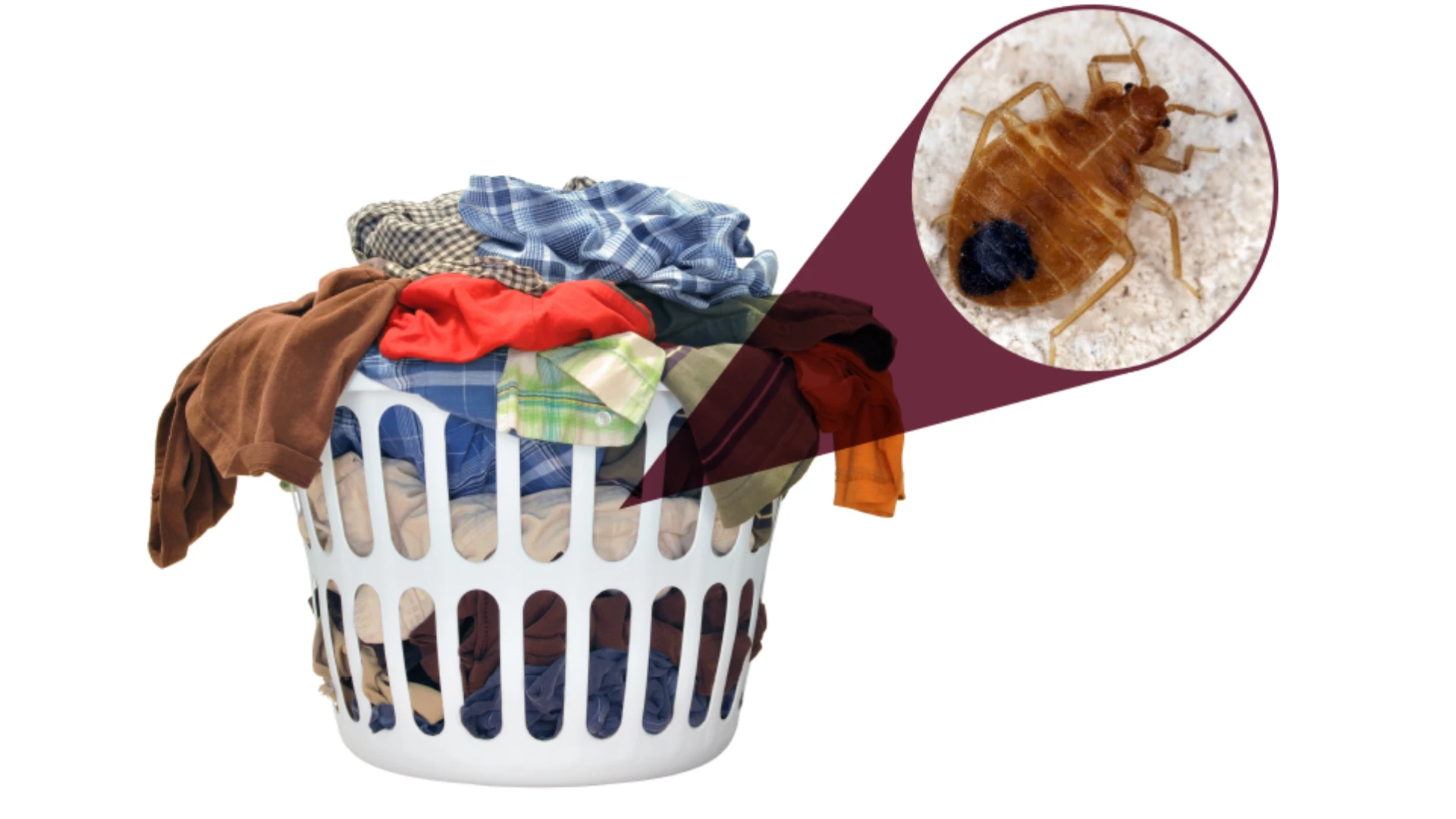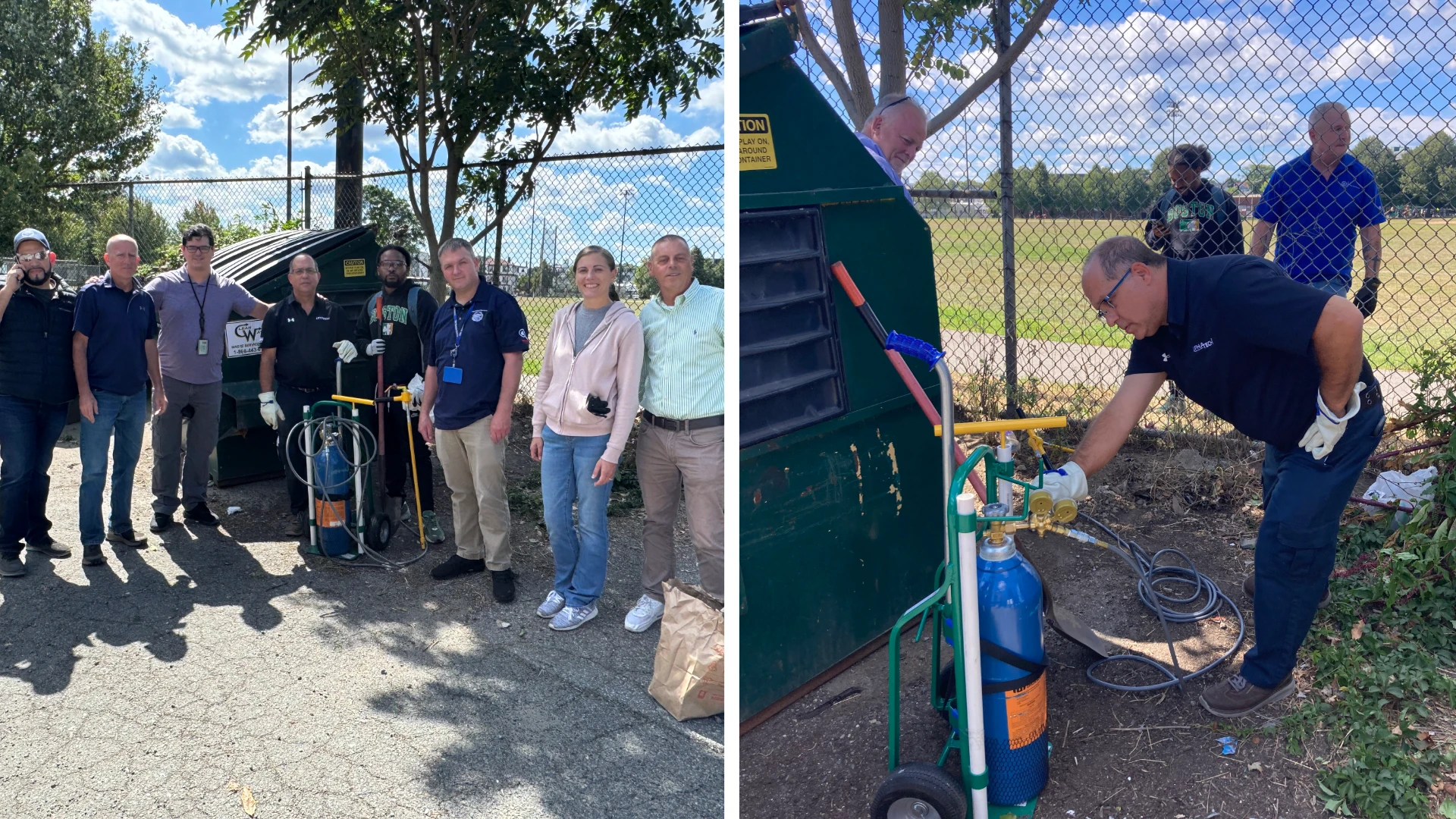
FAIRFAX, Va. — The National Pest Management Association (NPMA) in March released its bi-annual Bug Barometer, a seasonal forecast of pest pressure and activity Americans can expect to see in their respective regions of the country based on weather patterns and long-term predictions, as well as pest biological behaviors. According to NPMA’s entomologists, residual winter moisture coupled with wet forecasts ahead will cause pest populations to spike early in much of the continental U.S. this spring and summer.
“While regions across the country were either unseasonably cold or warm this past winter, there’s one factor that almost all of them had in common — excessive moisture,” said Jim Fredericks, Ph.D., chief entomologist for the NPMA. “From record-setting snow in parts of Texas and Arizona to excessive rain in the Southeast, continued precipitation predicted for most of the country this upcoming season will allow pest populations to continue to thrive and multiply.”
Even the select few regions that will experience drier spring and summer conditions are not in the clear just yet. “Cockroach, ant and fly populations in drier regions will push their way indoors in search of food and water, bringing about a whole host of indoor pest-related health issues, including food contamination. Cockroaches can also trigger asthma and allergy symptoms,” added Fredericks.
Based on this analysis, the National Pest Management Association’s Bug Barometer is forecasting an early spike in pest populations across the entire U.S. this season:
Northeast & New England
A cold, rainy spring and early summer will allow ticks to thrive due to favorable humidity, and will keep rodents indoors as they look for warm, dry conditions to nest. Expect stinging insects to be a nuisance in New England as mild summer conditions are expected.
Southeast
Residual winter moisture will create ideal conditions for mosquito larval habitats to form in standing water, and will allow termite populations to flourish. With a rainy summer also predicted, expect increased cockroach and ant pressure as these pests move indoors for shelter.
Great Lakes, Ohio Valley & Midwest
Rapid snowmelt from warm spring conditions could potentially cause flooding, leading to an increase in tick and mosquito populations. Drier summer conditions expected in the Great Lakes region could also drive earwigs and springtails indoors in search of water.
North Central U.S.
After a very cold and wet winter, warm, rainy spring conditions may jump-start mosquito populations and allow tick populations to flourish. Warm, dry summer conditions in the northern part of this region also will help ant populations thrive, and could mean more exposure to stinging insects.
South Central U.S.
Exceptionally warm weather throughout winter helped pest populations persist. With a rainy, humid summer ahead, termite pressure will be high and ticks and mosquitoes will have plenty of resources for populations to boom.
Southwest U.S.
Warm, dry summer conditions will push cockroaches and ants indoors in search of food and water. Flies also may be an issue in this region as temperatures climb throughout the spring and summer.
Northwest U.S.
Warm and wet conditions allowed pest populations to survive through winter. Warm, dry summer conditions ahead will also allow tick and ant populations to grow.

Scherzinger Announces Leadership Change
CINCINNATI, Ohio — Scherzinger Pest Control announced that Hank Althaus has retired after 43 years with the Cincinnati-based firm. He officially retired on March 1.
Althaus started at the pest control company as a warehouse helper 43 years ago, and retired as president, a position he has held for five years. Althaus was instrumental in helping the company grow to rank 67th on the most recent PCT Top 100 list. Althaus also helped mentor the fourth generation of the Scherzinger family as they have transitioned through the company to their current roles.
Kurt Scherzinger was named president upon Althaus’ retirement.
Nine Awarded Student Scholarships by NCPMA

RALEIGH, N.C. — The Education Foundation of the North Carolina Pest Management Association (NCPMA) recently awarded scholarships to nine students pursuing post-high school education programs.
The Foundation awarded a scholarship to Samantha McPherson to assist in the continuation of her studies at North Carolina State University (NCSU). McPherson is a graduate student studying entomology.
The NCPMA Education Foundation awards $1,500 annually to students attending North Carolina State University. The scholarship was presented at the NCPMA Pest Control Technician’s School in Durham in January 2019.
McPherson grew up in Julian, N.C., and completed her bachelor’s degree in biology at the University of North Carolina at Greensboro. She currently studies cockroaches under Dr. Jules Silverman and Dr. Coby Schal at NCSU where her research is largely focused on cockroach nutrition, with emphasis on how cockroaches make diet choices and how diet affects reproductive success.
In addition, the NCPMA Education Foundation also awarded eight Past President’s Scholarships to students pursuing post-high school degrees:
- Alexander Felder, McDuffie Pest Control, University of North Carolina at Wilmington
- Paul Kelley Jr., McNeely Pest Control, North Carolina State University
- Crystal Mabe, Canady’s Termite and Pest, Campbell University
- Makayla Roberts, A-1 Termite and Pest, North Carolina State University
- Ansley Smith, Rid-A-Pest, East Carolina University
- Jessica Stevens, University of North Carolina at Greensboro
- Madeline Terrell, Carolina Pest Management, Central Piedmont Community College
- Dylan Walsh, Terminix Triad, East Carolina University
The Past President’s Scholarship by the Education Foundation of NCPMA was created in 2004 to help encourage and build the next generation of pest management professionals. Scholarships are awarded to owners or employees of NCPMA member companies and/or their family members including spouses, children and grandchildren. Preference is given to those who demonstrate an interest in pursuing careers in the pest management industry.
NCPMA has awarded more than $190,000 in scholarships since 2005.
Fendona PT Label Training Module Added to PCT’s DLC
VALLEY VIEW, Ohio — PCT’s Distance Learning Center continues to expand with the addition of BASF’s PT Fendona Pressurized Insecticide. Visit https://training.pctonline.com or PestWeb’s ProTraining website and get started on the module.This and other label training modules are the centerpiece of PCT’s Distance Learning Center — a free service for the professional pest control market provided by PCT.
Created by Board Certified Entomologist and consultant Stoy Hedges, the courses use photographs, video clips and reference materials to challenge users’ knowledge, experience and problem-solving skills for a wide range of products and pest problems.
Accessible by PC, tablet or smartphone, Distance Learning Center training is presented in modules designed to take a half-hour to an hour to complete. Their brevity gives individuals the opportunity to fit this education in whenever their schedules allow — even during breaks or lunchtime. And if a user needs to stop while taking a course, no problem: He or she can close the program and pick up at the point left off later.
Each label course is designed around reading and interpreting a specific pesticide product label, covering all aspects of the label — from trade name, target pests, hazards and first aid to areas for treatment and directions for use. As the user takes the course, he or she will be required to identify pests or treatment sites by photograph and determine whether such pests or sites are included on the label and/or interpret how that product may be used to treat the pest according to label directions.
Training is divided into sections with three to seven related questions, and upon selecting the correct answer(s), an explanation of the correct answer is provided, sometimes with a tip on where the pest professional can find the answer in the reference materials. These explanations help to improve the user’s understanding of the topic materials.
Visit https://training.pctonline.com to get started, and return frequently as new label training modules are being added monthly.
Tom Schultz Recognized with Steven Graff CPMA Ambassador Award

CALGARY — At Pest Management Canada 2019, held March 7-9 in Calgary, Alberta, Canada, the Canadian Pest Management Association and Bayer presented Tom Schultz, co-owner of Edmonton Exterminators, with the second annual Steven Graff CPMA Ambassador Award.
The award recognizes individuals for their contributions to the pest management industry in Canada, and honors the memory of Graff, the longtime quality assurance manager at Abell Pest Control and past CPMA president, who passed away in 2017. Graff’s CPMA accomplishments included defending the pest control industry before the Canadian government and helping foster the relationship between CPMA and Health Canada’s Pest Management Regulatory Agency (PMRA).
A native of Sherwood Park, Alberta, Schultz grew up in the pest control industry. His father helped to build another pest control company in the Edmonton and Calgary markets in the 1960s, and the elder Schultz was influential in helping his son chart his career path after high school.
In addition to running Edmonton Exterminators, a family-based business that was established in 1979, Schultz has spent 14 years on the executive board of the Pest Management Association of Alberta, which has direct ties to the Canadian and National Pest Management Associations.
Schultz, a 40-year industry veteran, also is widely praised by his peers for having a very good working relationship with staff members of Alberta Environment, the regulating body of pest control in the province.
Presenting the award to Schultz were Darcy Olds, territory manager for Bayer, and Sandy Costa, president of the Canadian Pest Management Association. — Brad Harbison
Copesan, Syngenta Support Research and Education for Pest Management Professionals

MENOMONEE FALLS, WIS. — Copesan Services recently made an $8,340 contribution to two key charitable organizations providing scholarship funds and research support to the pest management industry.
The Copesan network of local service providers has been raising funds for 18 years in support of Pi Chi Omega and the National Pest Management Association (NPMA) Foundation for research through its annual Copesan Charity Raffle.
“Supporting research and education in our industry is key to its growth and important to the Copesan family. Professionals in our network are so generous and truly value the efforts of these organizations,” said Deni Naumann, president of Copesan Services. “We are excited to continue our tradition of support for the NPMA Foundation and Pi Chi Omega.”
Sponsored by Syngenta, the 2019 fundraising raffle was held in conjunction with Copesan’s annual conference, Feb. 19-21, 2019, in St. Pete Beach, Fla. This year’s event was attended by more than 300 members of the Copesan Partner network and pest management suppliers who raised $4,170 in just a few short days. Copesan matched this amount for a total donation of $8,340 to be equally divided between Pi Chi Omega and the NPMA Pest Management Foundation for research.
Pi Chi Omega, an international fraternity for pest management professionals, provides multiple $2,000 scholarships each year to deserving entomology students at universities across the country and around the world. The NPMA Pest Management Foundation has been providing grants for the research, development and refinement of pest management tools and techniques for more than 30 years.

Explore the April 2019 Issue
Check out more from this issue and find your next story to read.
Latest from Pest Control Technology
- Rentokil Terminix Expanded in Key Markets with 2024 Acquisitions
- In Memoriam: Joe Cavender
- Certus Acquires Green Wave Pest Solutions
- Liphatech Adds Alex Blahnik to Technical Team
- Do the Right Sting: Stinging Insect Identification, Management, and Safety
- VAGA's 8th Annual Veterans Thanksgiving Appreciation Dinner
- Clark's Blair Smith on the Response to Increased Dengue Fever Cases in Southern California
- WSDA, USDA Announce Eradication of Northern Giant Hornet from U.S.





